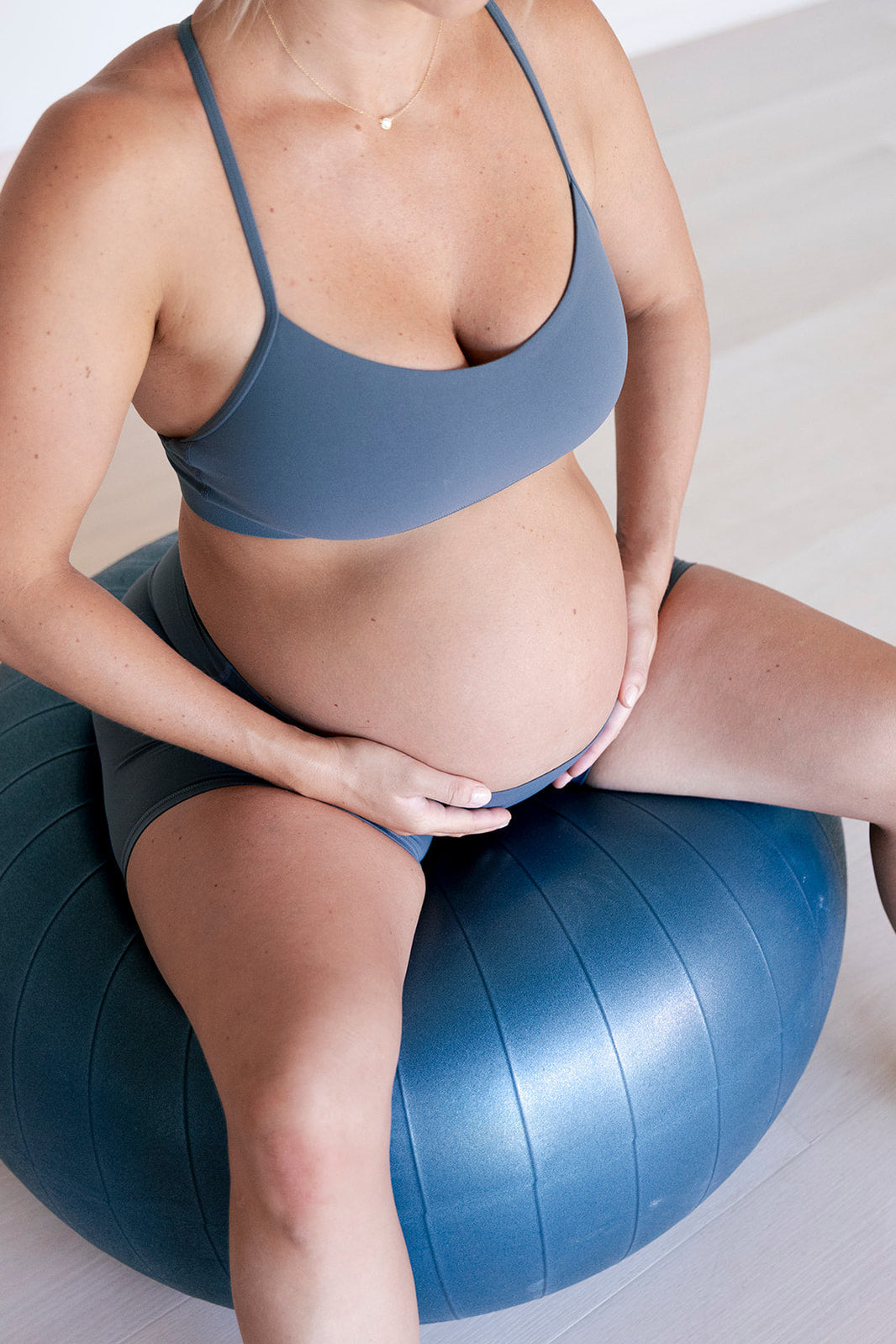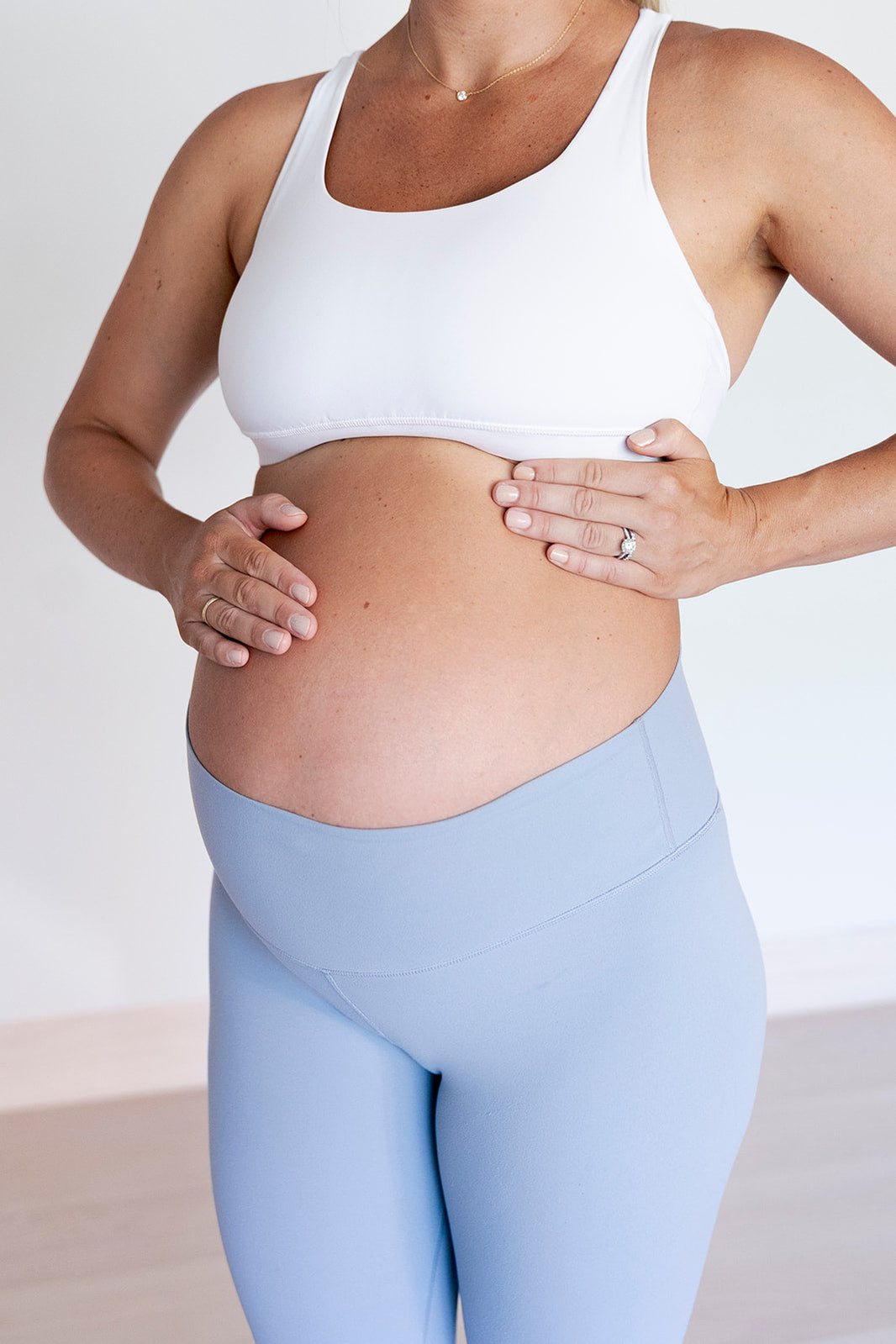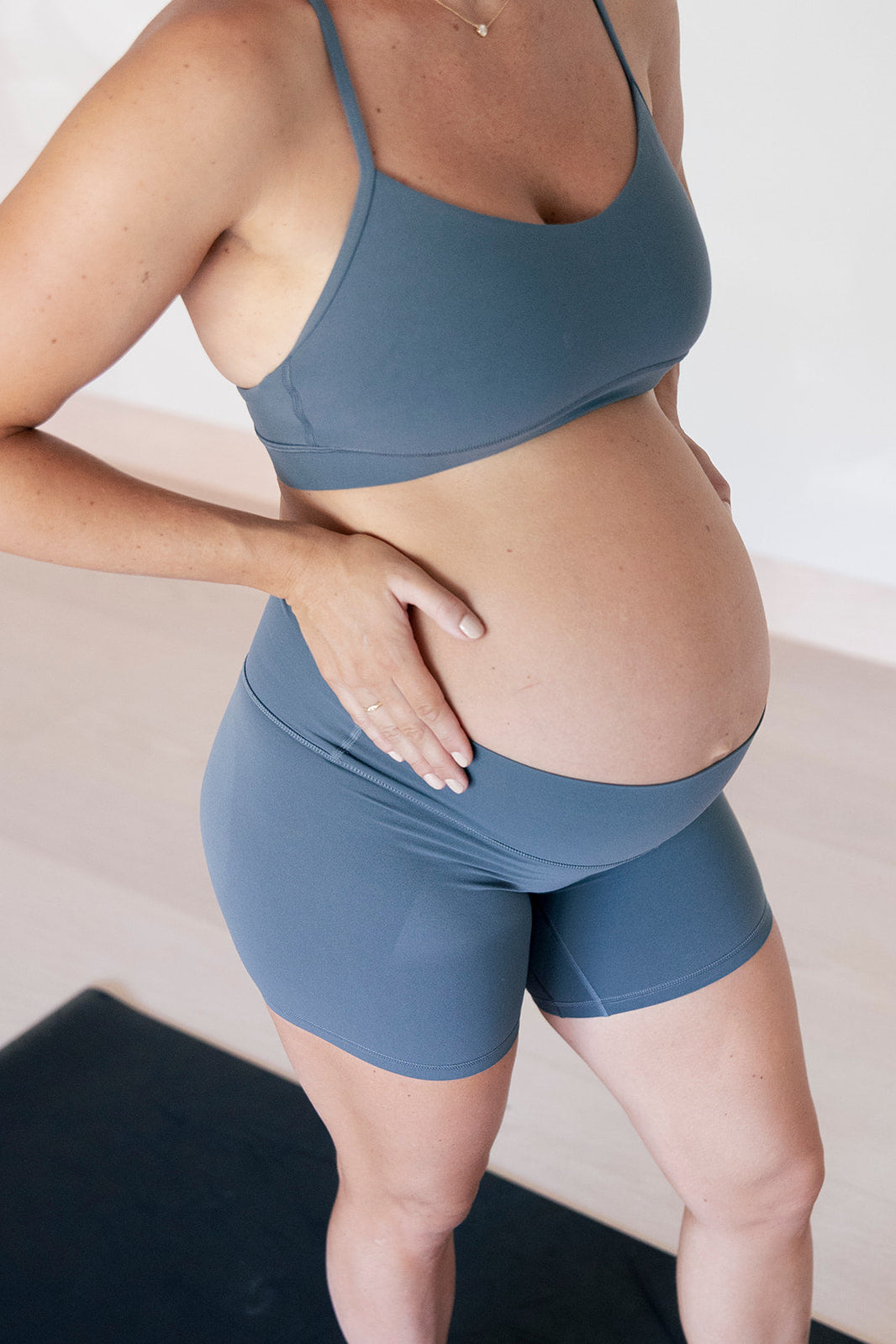Pregnancy is a time of change, growth, and lots of learning. One of the biggest changes that often causes worry for many is weight gain. But guess what? Gaining weight during pregnancy is not only normal but essential for your baby’s health and development. We’re all about embracing the journey, celebrating the changes, and focusing on what really matters: the health and well-being of both you and your little one.
Let’s talk more about weight gain during pregnancy and discuss what’s normal, how to avoid excessive weight gain, and why obsessing over losing weight too quickly postpartum isn’t the best path for long-term health.
Understanding Normal Weight Gain During Pregnancy
Let’s start by setting the record straight: pregnancy weight gain is expected, normal, and necessary. Your body is doing an incredible job growing a new life, and that requires some extra pounds!
The amount of weight gain recommended depends on where you started before pregnancy. Here’s a quick breakdown from the American College of Obstetricians and Gynecologists (ACOG):
- If your BMI was normal (18.5-24.9): Expect to gain about 25-35 pounds.
- If you were underweight (BMI under 18.5): You might need to gain a bit more, around 28-40 pounds.
- If you were overweight (BMI 25-29.9):A gain of 15-25 pounds is considered healthy.
- If you were obese (BMI of 30 or higher): Gaining around 11-20 pounds is recommended.
Your doctor will monitor your weight gain at each prenatal visit to make sure everything is progressing well for both you and your baby. And remember, these numbers are guidelines, not strict rules. Every pregnancy is unique!
Where Does the Weight Go?
Curious where those extra pounds are going? Here’s a breakdown:
- Baby: Around 7-8 pounds.
- Placenta: 1.5 pounds.
- Amniotic fluid: 2 pounds.
- Breast tissue: 2-3 pounds.
- Blood supply: 4 pounds.
- Stored fat for breastfeeding: 5-9 pounds.
- Uterus growth: 2-5 pounds.
So, when you step on the scale and see those numbers go up, remember it’s not just fat. It’s your body doing what it needs to do to support your baby!
How to Avoid Excessive Weight Gain
While gaining weight is essential, gaining too much weight can increase the risk of complications like gestational diabetes, preeclampsia, and even a more challenging recovery after birth. But don’t worry, there are simple ways to keep your weight gain in check without stressing out:
-
Focus on Nutrient-Dense Foods
Think quality over quantity! You don’t need to double your food intake just because you’re pregnant. In fact, in the first trimester, you don’t need any extra calories at all. As you progress, you’ll only need an additional 300-450 calories per day. Choose foods that pack a nutritional punch, like:
- Fruits and veggies: for vitamins and fiber.
- Lean proteins: like chicken, fish, beans, and tofu to support your baby’s growth and your own muscular growth/ retention.
- Whole grains: for muscular energy and digestion support.
- Healthy fats: like avocados and nuts for brain development and energy.
Filling your plate with nutrient-dense options can keep your weight gain on track while giving you and your baby the nourishment you both need.
-
Stay Active
Exercise during pregnancy isn’t just safe – it’s recommended! Staying active helps control weight gain, improves your mood, reduces aches and pains, and even prepares your body for labor. ACOG recommends at least 150 minutes of moderate exercise each week, or moderate intensity walking, jogging, swimming, or resistance exercise. Of course, always check with your healthcare provider before starting or continuing any exercise routine during pregnancy to make sure you are cleared for any contraindications or precautions for exercise.
-
Eat Smaller, Frequent Meals
Rather than having three large meals a day, try smaller, more frequent meals. This can help with digestion, manage blood sugar levels, and prevent overeating. Plus, it’s easier on your body and helps you feel more comfortable, especially in those later months.
-
Stay Hydrated
Water is your best friend during pregnancy. Sometimes thirst can be misinterpreted as hunger, leading to unnecessary snacking. Make sure you’re drinking plenty of water throughout the day – about 8-10 glasses – and more if you’re exercising.
Why Postpartum Weight Loss Shouldn't Be Your First Priority
After giving birth, it’s completely normal to want to get back to your pre-pregnancy body. But here’s the thing: focusing too much on rapid postpartum weight loss can be harmful. Your body needs time to heal, and putting pressure on yourself to lose weight quickly can interfere with both your physical and mental recovery.
Here’s why taking a balanced approach to postpartum recovery is so important:
1. Your Body Needs Time to Heal
Pregnancy and childbirth are major events for your body. After delivery, your body is still healing, whether from a vaginal birth or a C-section. Jumping into intense workouts or restrictive dieting too soon can delay healing, limit breastmilk output, cause irregular hormonal patterns postpartum, and even lead to injury. Give your body the rest and care it needs to recover fully.
2. Breastfeeding and Weight Loss
If you’re breastfeeding, your body needs extra calories to produce milk. While breastfeeding does burn calories and can naturally help with postpartum weight loss, cutting calories too drastically can affect your milk supply. Focus on eating balanced meals that support both your recovery and your baby’s needs. It is typically recommended to increase your calorie intake by 300-400 calories while breast feeding to prevent placing yourself at an energy deficient state postpartum.
3. Mental Health Matters
Let’s be real: the postpartum period can be emotionally tough. Lack of sleep, hormonal changes, and adjusting to life with a new baby can all take a toll on your mental health. Adding the pressure of rapid weight loss into the mix can increase stress, anxiety, and even contribute to postpartum depression. Instead, focus on self-care, rest, and bonding with your baby. The weight will come off in time – there’s no rush!
4. Building a Healthy Relationship with Your Body
Pregnancy and childbirth change your body in many ways. Instead of focusing on "bouncing back" to your pre-pregnancy weight, celebrate what your body has done. It grew and nurtured a new life, and that’s something to be proud of! By embracing your postpartum body and taking a balanced approach to recovery, you’re setting a positive example for your baby and building a healthy relationship with your body that will last a lifetime.
Finally
Weight gain during pregnancy is essential for a healthy baby and a healthy you. By focusing on nutrient-dense foods, staying active, and being mindful of your body’s signals, you can keep your weight gain on track without stressing about the numbers on the scale. And when it comes to postpartum recovery, remember: your body needs time to heal. Focus on your health, your baby, and everything else will fall into place.
At Momday, we’re here to support you on your journey through pregnancy and beyond. You can join our Pregnancy Fitness Program to keep you on track and motivated with your pregnancy fitness.
We believe in empowering you to feel confident, healthy, and strong – every step of the way. So embrace the changes, love your body, and remember that you’re doing amazing things!
References








